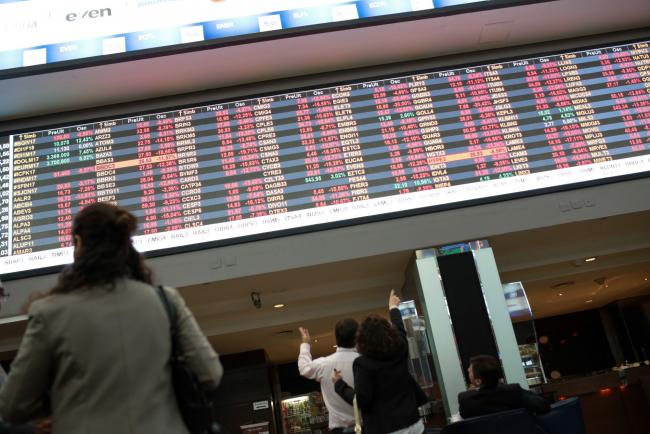This post was originally published on this site
https://d1-invdn-com.akamaized.net/content/pic18ecd374cd315119434d0dc1f29811a7.jpg
Rising Covid-19 case numbers and uneven rates of recovery in the biggest of the developing economies underscore a nagging concern that this will be about as good as it gets for stocks, bonds and currencies. The relative strength index on MSCI Inc’s emerging-market equities gauge is above 70, suggesting the market is in overbought territory. The average yield on local-currency debt is less than 20 basis points above the all-time low of 3.46% reached in May.
Even though the virus is likely to hold back growth next year, a blended price-to-earnings ratio of emerging-market stocks based on analyst estimates for the next 12 months is currently at 15.4, a record high in data compiled by Bloomberg starting in 2005.
The fact remains though that with central-bank stimulus efforts and vaccine roll-outs providing comfort, most investors are confident the rally has further to run. Emerging-market economies will post an average fourth-quarter growth rate of 2.2%, according to a Bloomberg survey, though many see the efficacy of inoculation programs as a key driver for sentiment. The World Bank’s Global Economic Prospects report on Tuesday is set to provide further clues on the pace of recovery.
“Markets are naturally forward-looking, so we have seen a strong rally despite the dark winter with restrictions still in place in many countries,” said Trieu Pham, a strategist at ING Groep (AS:INGA) NV in London. “We remain constructive going in early 2021, with hopes that we turn a page on the Covid-19 issue and with major central banks remaining dovish.”
Listen: EM Weekly Podcast: Georgia Senate Runoffs, PMIs, Inflation Data
Developing-nation stocks ended 2020 at the highest level in 13 years while currencies edged closer to their 2018 record. Local-currency bonds had their best quarter in more than a decade, with investors staring down more than $17 trillion of negative-yielding debt worldwide.
That’s not to say there aren’t enough events to keep traders on their toes this week. Markets could face headwinds after the New York Stock Exchange said it will delist China’s three biggest telecom companies to comply with a U.S. executive order. Chinese oil majors, including CNOOC (NYSE:CEO) Ltd., may be next in line for delisting in the U.S., according to Bloomberg Intelligence.
The Georgia Senate runoffs on Tuesday may also affect sentiment toward risk assets, with the outcome set to decide control of the U.S. Senate and influence the ability of President-elect Joe Biden to advance his legislative agenda. Elsewhere, the Gulf Cooperation Council summit on the same day is seen as a possible step in resolving a crisis that erupted mid-2017 when Saudi Arabia, the United Arab Emirates, Bahrain and Egypt severed trade, travel and diplomatic ties with Qatar.
Among a slew of economic data due this week, Turkey’s year-end inflation rate was in focus on Monday as it leaves Governor Naci Agbal with little choice but to keep access to credit tight well into 2021.
Inflation Data
PMI Releases
Other Data
©2021 Bloomberg L.P.

